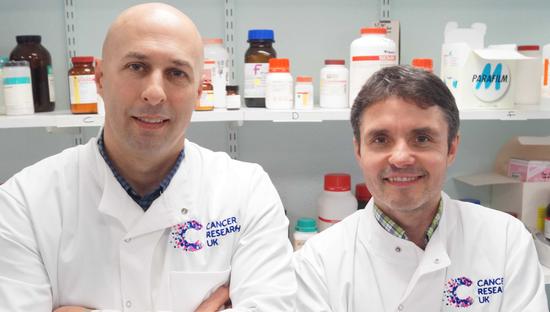Improving antibody immunotherapies

Professor Stephen Beers (left) and Professor Mark Cragg
Antibodies are specialised proteins found in the blood that recognise foreign substances, such as bacteria and viruses, and target them for attack by the immune system. Researchers can also modify antibodies in the lab (monoclonal antibodies) to use as treatments to fight cancer.
Monoclonal antibodies identify particular molecules on the surface of cancer cells and bind to them. This alerts the immune system to the presence of cancer, so it destroys the cancer cells.
Unfortunately, monoclonal antibody treatments are not effective in every patient and some cancers can develop resistance to them, so further research is needed to improve these therapies.
Professors Mark Cragg and Stephen Beers, at the CRUK Southampton Centre, are researching how cancer cells learn to change the molecules on their surface so the antibodies don’t stick, leading to treatment resistance. They also looking for ways to manipulate these surface molecules using drugs, to make antibody treatments more effective.
Although this initial research will focus on antibodies used in the treatment of lymphoma, such as rituximab, it is expected that the outcomes of their work will also benefit other monoclonal antibody treatments in a range of other cancers in the future.
